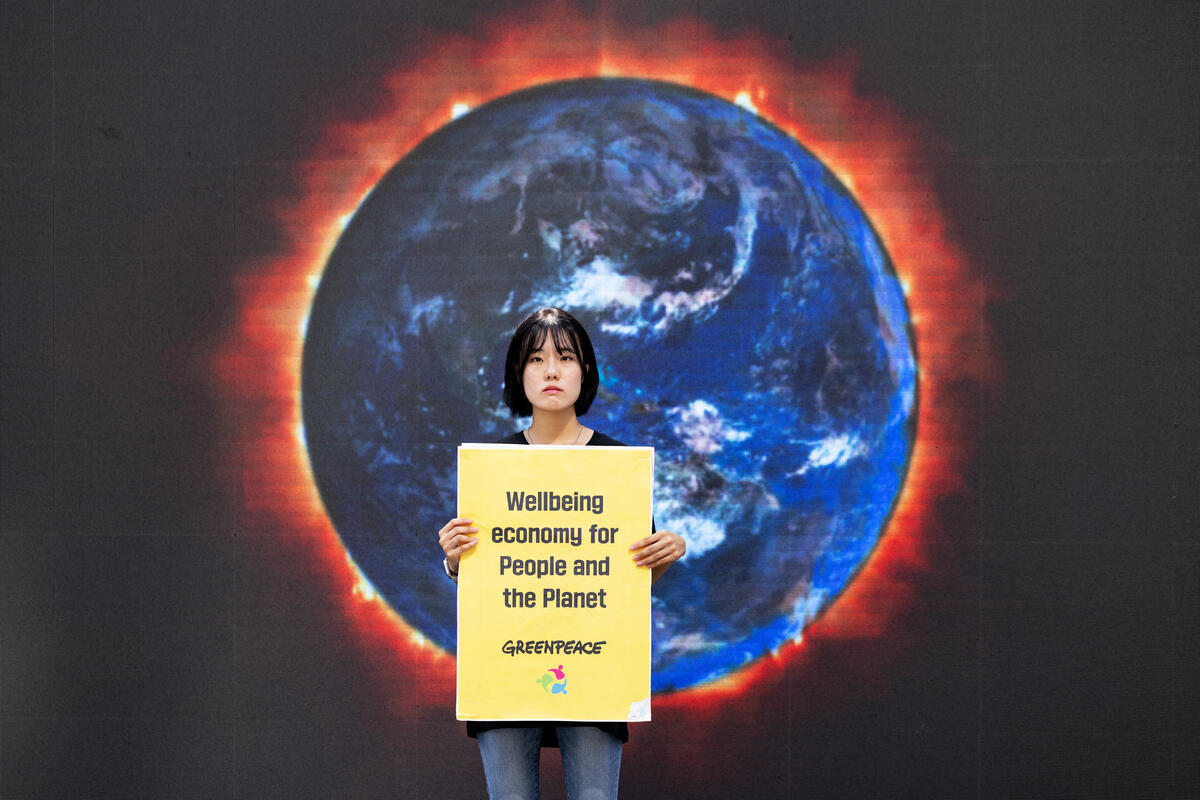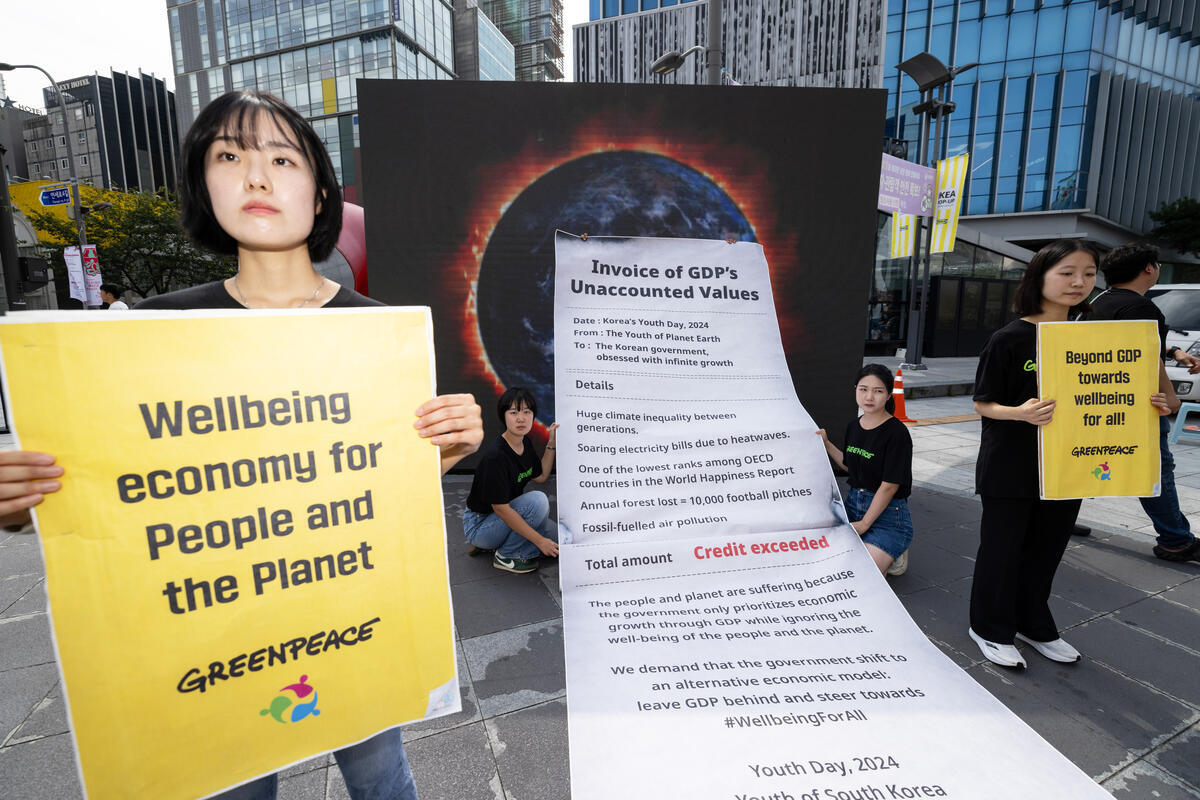Finding hope and taking action in the face of climate anxiety.
On 18 September 2024, during Chuseok, Korea’s thanksgiving holiday, South Koreans received an emergency alert on their phones.
Emergency alert: Heatwave warning issued at 2:00 PM today. Please refrain from outdoor activities.
We live in a world where we sometimes receive several emergency alerts from the government, making us less responsive to them. But the warning about the heatwave that day was different, it directly affected our safety and couldn’t be ignored.

News reports say that the number of tropical nights in September has reached a record high. The number of heatstroke patients has also increased due to the heatwave. According to Greenpeace Korea’s research, in South Korea, the average number of heatwave days per city over the past 10 years has been 51.08 days, more than double the number from 20 years ago. This is truly a disaster that cannot be ignored.
Looking at the heatwave warning, I remembered a recent conversation with an acquaintance. Knowing that air conditioners contribute to global warming, she avoided using one but she didn’t have a choice this year when the nights got unbearably hot and uncomfortable. It made her feel sad.
Climate anxiety in a time of crisis
Sadness. This emotion is probably what many people feel when they face the overwhelming reality of the climate crisis, a problem that seems impossible to solve. We try our best to protect the environment, but it’s not as easy as we think. It’s even harder if we do not have enough money or time to always make sustainable choices.
We’ve talked about our own culpability for too long. Today, I used plastic, I turned on the air conditioner because of the unbearable heat, I took a taxi instead of the train because I was running late, and I ate meat because the restaurant didn’t have any vegetarian options.
We all live in a society that is a collection of systems that have a huge impact on our choices.
Why is the world getting hotter? Why is everything made of plastic? Why are things being made and discarded that we don’t need? Why do we value a fast-paced, destructive society over one that is slow but makes everyone happy? We are on a journey to find answers for ourselves and our communities.
Go beyond GDP to measure success
On September 19th, the day after the heatwave warning, Greenpeace Korea – Seoul office installed a large LED screen at Sinchon Station in Seoul. The screen displayed a burning Earth on repeat. In front of it, a 5-meter-long receipt was unfurled. The title of the receipt was “Invoice of GDP’s unaccounted values.”

Gross Domestic Product, or GDP, has become a symbol of a metric that measures only the quantity of the economy, not its quality. It fails to adequately consider other values such as climate change response, social well-being, and equality. The “details” section of the receipt reflects the negative consequences of a society that ignores the quality of its economy. For example, it includes items like “Soaring electricity bills due to heatwaves.”
If the burning Earth reflects the world we live in today, the text on the receipt shows the damage we are suffering. In the face of the longest-lasting heatwave, Greenpeace Korea – Seoul office argues that we should invest in a good life and climate crisis response, not economic expansion. The belief that the size of the economy must constantly expand has led to the climate crisis, and it has exhausted the people living within it.
The message that saving our own lives can also save the planet could be a hopeful solution that can transcend sadness and pessimism. Even though the climate crisis provokes in us feelings of anxiety and frustration, if we realize that the path to improving our lives is to save the Earth, the process may not remain simply sad.
